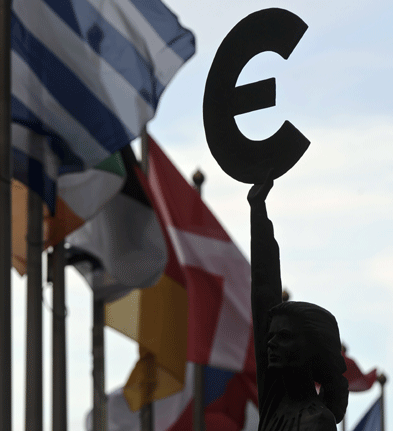British happy to have stayed out of eurozone
Updated: 2011-12-28 08:15
(China Daily)
|
|||||||||
|
|
LONDON - A decade after the euro came into circulation, the British are more hostile than ever toward a currency that faces a battle for survival and cannot hide their satisfaction at holding on to the pound.
However, such sentiment masks the fact that while the eurozone is struggling, the British economy is not exactly booming either.
According to a poll in the wake of Prime Minister David Cameron's veto at a crunch European Union summit, 65 percent of Britons said they believe the euro is doomed and only one in five respondents thought it would survive.
The Sunday Times newspaper caught the mood with its headline: "It's bad, but at least we're outside the eurozone".
Anyone who hates Europe and the euro "can boast in the pub that they were right all along", it said.
Despite the hostility to the euro, the tangible benefits of Britain's decision to stay out of the single European currency appear to be limited.
Figures from the European Commission show that Britain's public deficit in 2011 will be greater than Greece's and its debt will be roughly equal to France's, despite an unprecedented set of painful austerity measures.
Meanwhile, unemployment is at a 17-year high and inflation is twice the rate in the eurozone. In addition, Britain is still hurting from the financial crisis of 2008, which caused deep damage to its banking and financial services sectors.
Financial services were the reason given by Cameron for dramatically using the veto on a revamped EU treaty because he feared new regulations from the bloc would restrict the City of London's room to maneuver.
However, Britain does have a distinct advantage compared to its eurozone neighbors - an autonomous central bank.
Over the past three years, the Bank of England (BoE) has pumped the equivalent of 75 billion pounds ($430 billion) into the economy and bought large quantities of gilts, in contrast to the European Central Bank.
As a result, rates of return on British 10-year sovereign bonds are now near those of German bonds, meaning Britain is able to borrow on more favorable terms than most of its fellow EU nations.
However, liquidity injections by the BoE have also contributed to the relative weakness of the pound, which currently buys around 1.15 euros ($1.50), a mighty fall from its peak of 1.75 euros in May 2000.
"Had Britain joined the euro, it (Britain) would have been vastly worse off today," said Joshua Raymond, an analyst from the financial services company City Index Group.
"The downside potential from being dragged into the sovereign debt (crisis) directly, as opposed to the current indirect picture ... negates any positives from a previous adoption of the single currency", such as greater trade ties, Raymond said.
"Stuck inside the euro, the Bank of England would not have been able to buy up such a substantial share of UK government debt," said Colin Ellis from BVCA, an industry body for the private equity and venture capital sectors in Britain.
Stephen Gallo of Schneider Foreign Exchange said Britain's EU partners who are grumbling about the UK's refusal to adopt the currency should ask themselves "how much worse it would be for the euro if Britain were in it".
"If it were, the UK would almost certainly have needed a bailout."
AFP












